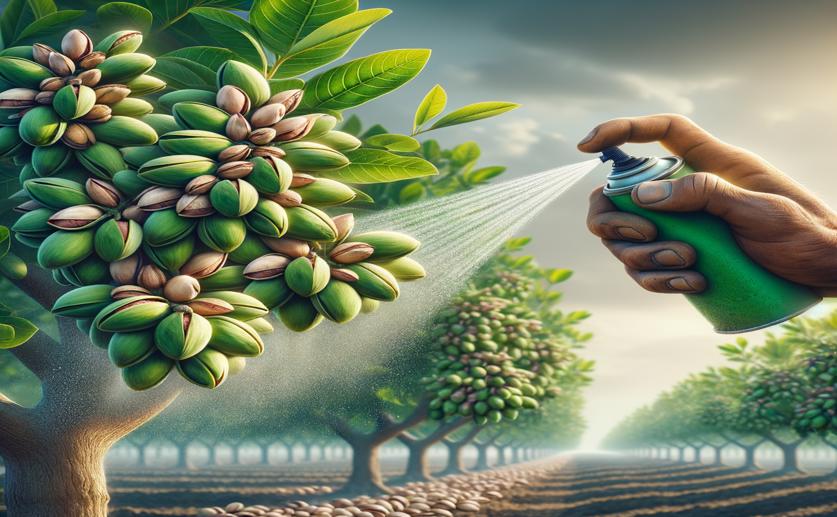
Boosting Pistachio Quality with Fulvic Acid Sprays
Jim Crocker
6th April, 2024

Image Source: Natural Science News, 2024
Key Findings
- In Iran, a study found that fulvic acid boosts antioxidants in pistachios
- Treated pistachios had higher levels of beneficial compounds like phenols and flavonoids
- The study suggests sustainable farming practices can improve crop quality
AgricultureNutritionPlant Science
References
Main Study
1) Fulvic acid foliar application: a novel approach enhancing antioxidant capacity and nutritional quality of pistachio (Pistacia vera L.)
Published 4th April, 2024
https://doi.org/10.1186/s12870-024-04974-0
Related Studies
2) Pistachio Nuts (Pistacia vera L.): Production, Nutrients, Bioactives and Novel Health Effects.
3) Ginger Extract and Fulvic Acid Foliar Applications as Novel Practical Approaches to Improve the Growth and Productivity of Damask Rose.
4) Comparison of the total phenolic and ascorbic acid content of freeze-dried and air-dried marionberry, strawberry, and corn grown using conventional, organic, and sustainable agricultural practices.
Journal: Journal of agricultural and food chemistry, Issue: Vol 51, Issue 5, Feb 2003
5) Three-year comparison of the content of antioxidant microconstituents and several quality characteristics in organic and conventionally managed tomatoes and bell peppers.
Journal: Journal of agricultural and food chemistry, Issue: Vol 54, Issue 21, Oct 2006



 3rd March, 2024 | Jim Crocker
3rd March, 2024 | Jim Crocker